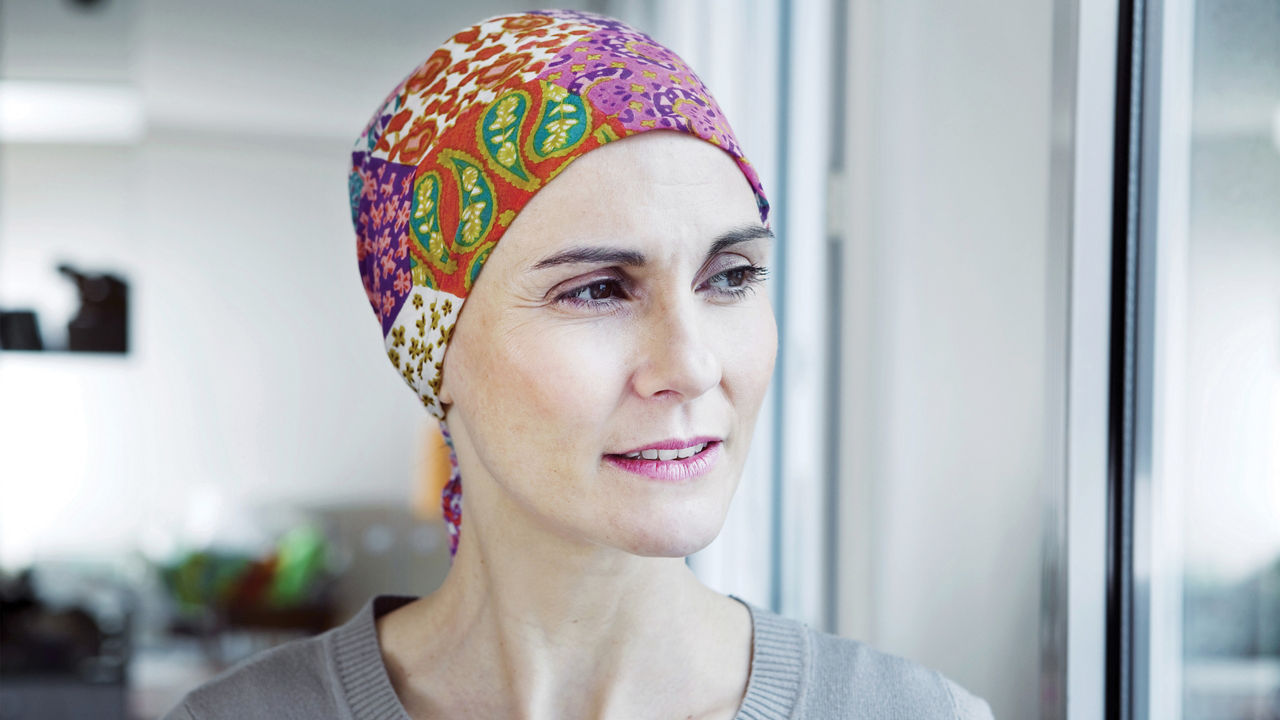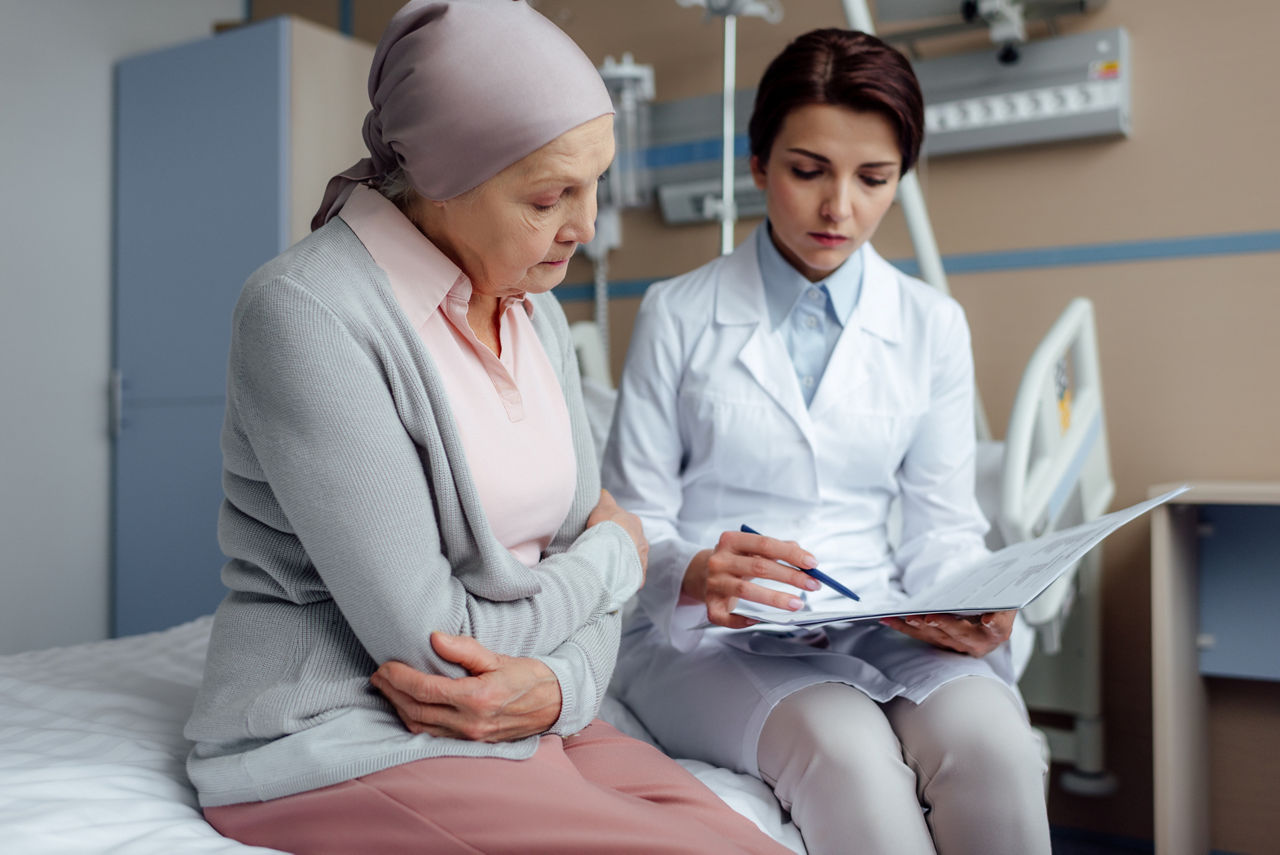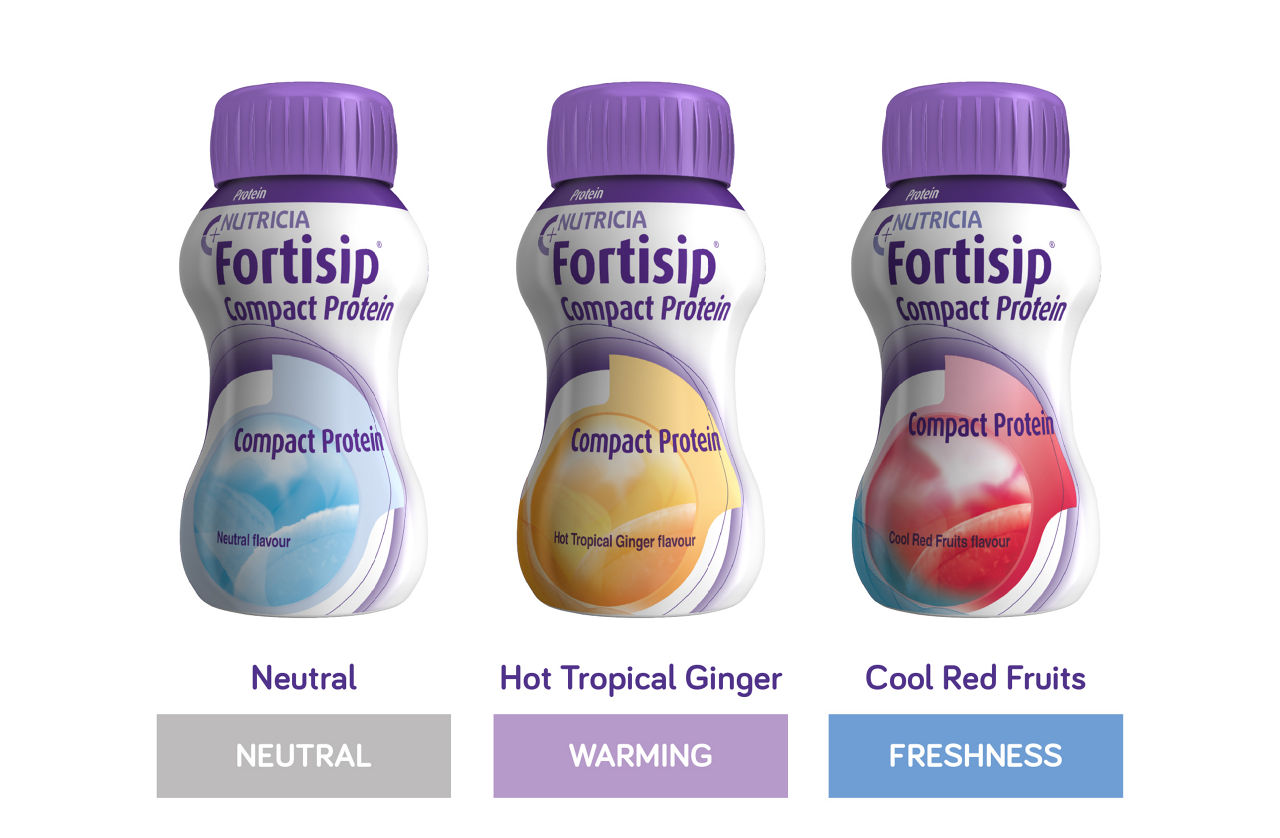Cancer is a complex disease with patients becoming at high risk of malnutrition both as a consequence of their illness and its treatment1. Over 50% of cancer patients present with weight loss at diagnosis and, for many patients, nutritional status continues to deteriorate during and after treatment.2,3

Up to 80% of all cancer patients will be malnourished.4
Cancer related malnutrition is driven by a combined effect of reduced nutritional intake and metabolic changes5-7. These factors contribute to negative energy and protein balance leading to weight and muscle mass loss1.
Poor nutritional status in addition to weight and muscle mass loss can lead to poorer outcomes for the patient. Clinically this impacts not only the patient but also the healthcare setting in a number of ways.
Patient impact
- Lower quality of life8
- Increased risk of treatment interruption or delay9
- Decreased survival9-11
- Decreased physical function12
Healthcare setting impact
- Extended hospital stays13,14
- Increased risk of hospital re-admissions13,14
- Increased costs of hospitalisation13,14
- Increased post surgery complications15
Prevelance of malnutrition in Oncology

Managing malnutrition in Oncology

Oral Nutritional Supplements in Oncology

Do you have a question?
Contact our team of experts for guidance on the use and composition of our product range, for support with queries regarding your Nutricia account and sampling service or to get in touch with your local Nutricia representative. We are available Monday to Thursday 9am-5pm and Friday 9am-4pm (except Bank Holidays)

1. Arends, et al. Clin Nutr. 2017;36(5):1187-1196.
2. DeWys WD et al. Am J Med. 1980; 69: 491-497.
3. Stratton RJ et al. Wallingford: CABI Publishing; 2003.
4. Ravosco, et al. J Clin Med. 2019; 8:1211.
5. Arends et al. Clin Nutr. 2016;36(1):11-48
6. Marín Caro et al. Clin Nutr. 2007;26(3):289-301
7. Fearon, et al. Lancet Oncol. 2011;12(5):489-495.
8. Sánchez-Lara, al. Nutr Cancer. 2012;64(4):526-534
9. Ross et al. Br J Cancer. 2004;90(10):1905-1911.
10. Martin et al. J Clin Oncol. 2015;33(1):90-99.
11. Gannavarapu et al. J Oncol Pract. 2018;14(4):e238-e250
12. Mariani et al. Support Care Cancer. 2012;20(2):301-309
13. Planas et al. Support Care Cancer. 2016;24(1):429-435.
14. Gourin et al. Ann Otol Rhinol Laryngol. 2014;123(2):101-110.
15. Yu et al. Eur J Clin Nutr. 2013;67(7):732-737
16. NICE. Nutrition support for adults: oral nutrition support, enteral tube feeding and parenteral nutrition. Clinical Guideline CG32. https://www.nice.org.uk/Guidance/CG32 [Accessed October 2020].
17. de Haan et al. Support Care Cancer. 2021. https://doi.org/10.1007/s00520-021-06049-4

